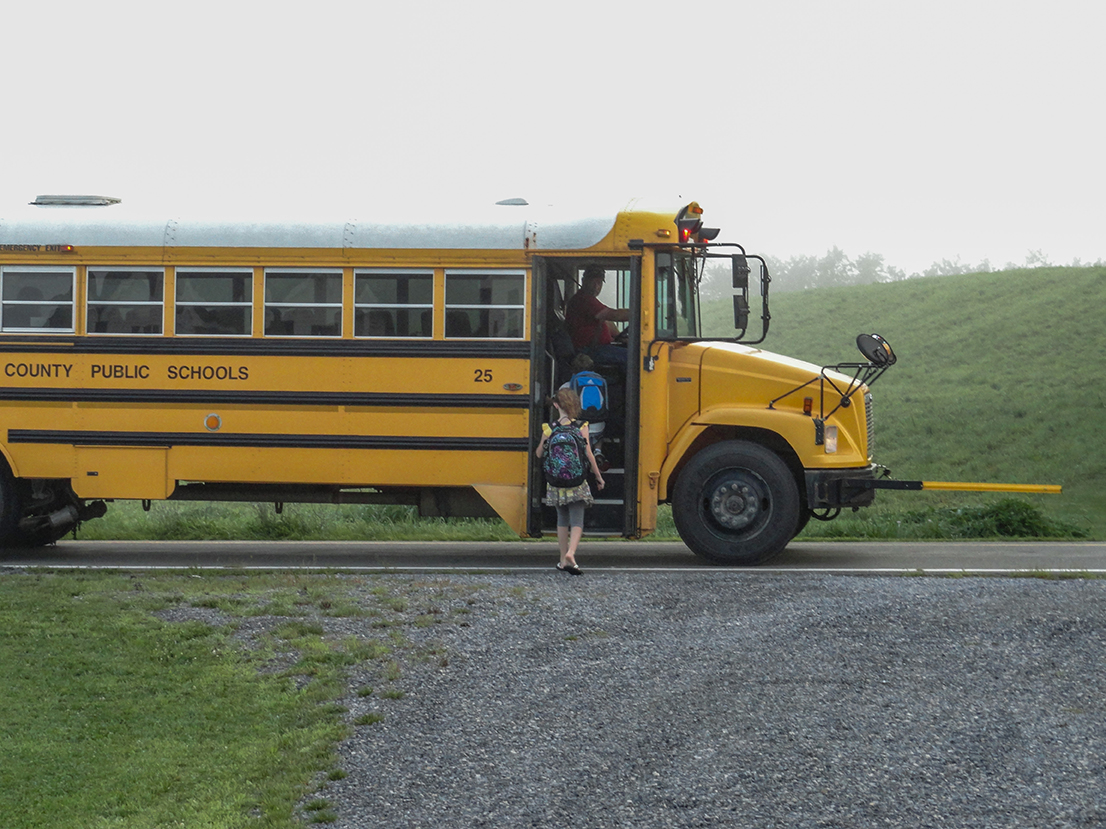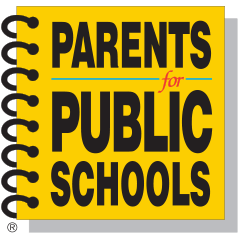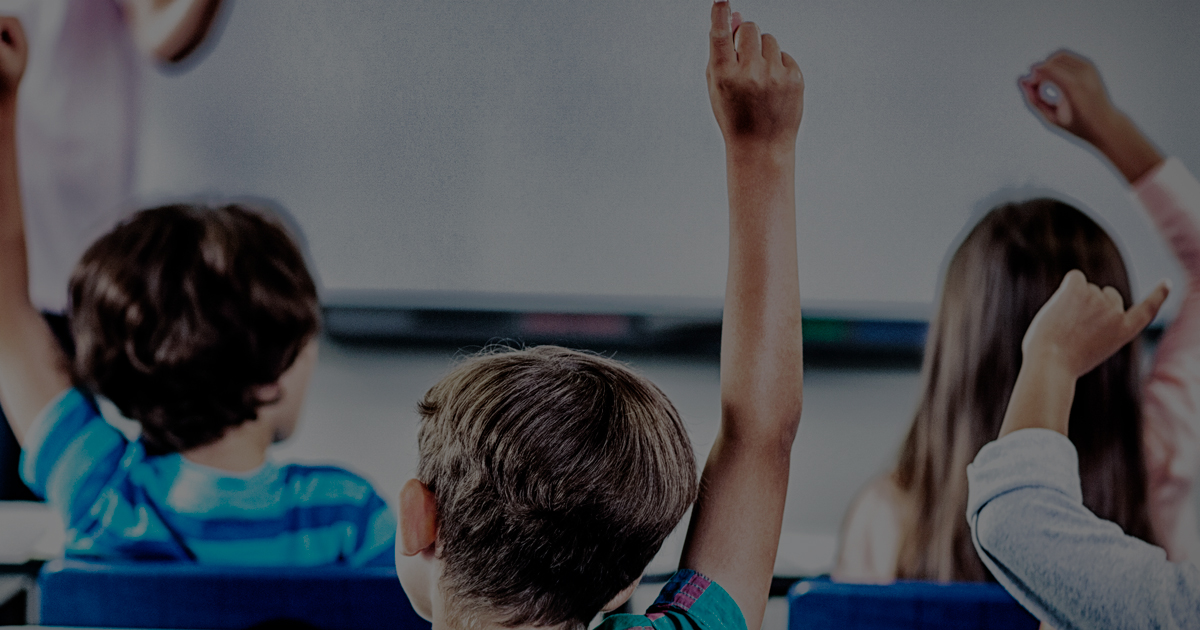This blog was written by Becky Glover, PPS Policy Analyst.
Recently, we’ve seen state legislators, congressional officials, and others celebrating and promoting the privatization of public schools, which they call ‘school choice.’ Well, I’m here to tell folks some of the many reasons why our family chooses public schools.
I support public schools because I grew up in a community with a strong, high-quality public school district that not only provided me with a great education but also learning opportunities not offered anywhere else. For instance, my public high school in Mississippi offered an elective class called Medical Careers. Taking that class gave me the opportunity to earn class credit hours while rotating through various departments at our local hospital, and two weeks before I graduated, I got to observe a baby being delivered. It was an incredible experience I’ll never forget! I couldn’t wait to get back to my school campus that day to thank my principal for making that experience possible!
As a young, white, Mississippi child who started kindergarten in 1965, I was completely unaware of desegregation or the related tension I’m sure some folks around me were experiencing. Looking back through classroom photos I can see desegregation unfolding. As an adult, I can imagine that some of my classmates’ school experiences during those years weren’t as smooth and pleasant as mine. As a direct and very personal benefit of desegregation and my public-school experience, I have lifelong friendships with a diverse population of classmates that otherwise wouldn’t have happened in the 1960s and ‘70s Mississippi I grew up in had I not gone to public schools. For that reason alone, I’m profoundly grateful for my public-school education and for my parents whose main concern was that I had good teachers.

Another factor impacting my public-school experience, that I was oblivious to while a student, was the significant level of community support for public schools led by some of the wealthiest and most forward-thinking people in my hometown. They worked collaboratively and wisely to ensure that two things happened simultaneously:
- that our community’s public school system was strengthened and supported by the wider community and
- that private schools were prevented from forming and dividing our community at a time when Mississippi was already experiencing violent racist division.
I can only imagine how difficult and heated some of their conversations must have been with folks staunchly opposed to integration and ones determined to start a private school so their children wouldn’t have to go to school with children whose skin color didn’t look like theirs.
As a direct result of progressive thinking, they convinced enough folks about the benefits of uniting to prevent irreparable division. Community leaders also acted collectively to focus on community development at a time when other towns concentrated solely on economic development. My hometown’s population has more than doubled since I was born there in 1960. In contrast, my current community, whose 1960 population was almost three times larger than my hometown, has now declined by more than 14,000 people. The current median household income in my birthplace is more than double that of the community I live in now … a community that chose to address integration by opening a private school in 1965 … a veiled attempt to maintain segregation.
My family and these two communities who helped shape us are living through the rollercoaster of trials and tribulations experienced individually and collectively and tied directly to public schools. The one lesson we’ve learned that always holds true is that strong public schools benefit more than just individuals and families. Strong public schools build strong communities providing the shared benefits of job growth, booming economies, and improved property values.
Eventually, my husband and I chose public schools for our son and he, too, had a great experience growing up in a school system completely integrated 35 years after my first year of public school.
He, too, had learning opportunities and extracurricular opportunities that weren’t offered anywhere else. He, too, had great teachers. He, too, developed lifelong relationships with a diverse group of friends that wouldn’t have happened to the same extent in a private school setting.
As anyone who’s experienced fierce competition knows, relationships forged in the shared struggle during battle on the athletic field run deep.
Our son’s longest lasting and most diverse relationships are still the ones built throughout his years of playing football at what was, then, the highest level of public high school athletic competition in the state – the state that boasts the most native sons playing in the 2023 Super Bowl. The most widely celebrated accomplishment of his team’s ‘band of brothers’ was winning the state championship by defeating the six-consecutive-year state champions. When the clock on that title game started, the school we were up against had not only won the past six consecutive championships – the young men who were Seniors on that opposing team had not lost a single game in six years. They boasted a winning streak of 89 – 0. Our team changed that record to 89 – 1. All differences – even the designation of offensive and defensive players on the same team – fall away when blood is shed on the football field. But we had been witnessing the falling away of differences throughout the entire season leading up to that night. Friends and families whose children and grandchildren attended any of five private schools in our community were coming to our public high school football games on Friday nights. They started following this team. They learned who the players were. They were pulling for us. And the crowds continued to grow throughout the season. On the night of the championship game with temperatures approaching freezing, many of these same friends and families traveled for two hours to cheer our team on to historic victory. A few days later, our community held a parade honoring this valiant group of young men. Our team had become their team, too. We were one community.
After graduating high school, our son became a starting wide receiver at another Mississippi public school – a junior college that would later become the top producer of players in the Southeastern Conference (SEC). As a starting wide receiver at that Mississippi JUCO, he and his teammates won two state championships and the school’s first national title. For one semester after that he attended a private university on a football scholarship. Shortly before that semester ended, he told us, “These are not my people. They’re nice, but they aren’t ‘my people.’” Instinctively, we knew exactly what he meant. It wasn’t the same atmosphere or ethos he experienced going to a public school with a diverse student population, and he discovered completely on his own that he, too, values diversity.
Even though the community I grew up in and the community we’ve lived in for the past 30 years are quite different in many respects, public schools have equipped each person in our family with a strong, academic foundation plus a wide variety of valuable lessons not found in any book. Our lives are richer, our diverse relationships have grown even wider, and our commitment to community is deeper because of public schools. As a result, each of our family members has been uniquely involved in supporting, advocating for, and, yes, holding public schools accountable.
We also don’t hesitate to speak truth to power with our elected officials by offering praise and gratitude when state legislators vote in ways that authentically strengthen public schools, and directly yet respectfully expressing disappointment and, sometimes, even disgust or anger when they propose legislation rooted in fear, hatred, or willful ignorance lacking data to back up their actions.
Within our little family of three, we have proof that our collective success or failure is directly tied to that of our public schools. This is why we advocate for more of our community to recognize that we are the collective owners of our public schools. In doing this, we hope to raise awareness that when more folks, more groups, more families, more businesses, and more elected officials behave as responsible stewards – not simply owners – of our public schools, we ALL benefit.

